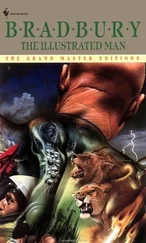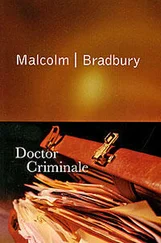Malcolm Bradbury - The History Man
Здесь есть возможность читать онлайн «Malcolm Bradbury - The History Man» весь текст электронной книги совершенно бесплатно (целиком полную версию без сокращений). В некоторых случаях можно слушать аудио, скачать через торрент в формате fb2 и присутствует краткое содержание. Жанр: Современная проза, на английском языке. Описание произведения, (предисловие) а так же отзывы посетителей доступны на портале библиотеки ЛибКат.
- Название:The History Man
- Автор:
- Жанр:
- Год:неизвестен
- ISBN:нет данных
- Рейтинг книги:3 / 5. Голосов: 1
-
Избранное:Добавить в избранное
- Отзывы:
-
Ваша оценка:
- 60
- 1
- 2
- 3
- 4
- 5
The History Man: краткое содержание, описание и аннотация
Предлагаем к чтению аннотацию, описание, краткое содержание или предисловие (зависит от того, что написал сам автор книги «The History Man»). Если вы не нашли необходимую информацию о книге — напишите в комментариях, мы постараемся отыскать её.
The History Man — читать онлайн бесплатно полную книгу (весь текст) целиком
Ниже представлен текст книги, разбитый по страницам. Система сохранения места последней прочитанной страницы, позволяет с удобством читать онлайн бесплатно книгу «The History Man», без необходимости каждый раз заново искать на чём Вы остановились. Поставьте закладку, и сможете в любой момент перейти на страницу, на которой закончили чтение.
Интервал:
Закладка:
'Who's Hegel?' asks Howard. 'You should answer a question directly when I ask one,' says Celia. 'She's a woman women read,' says Howard, 'she's on the right side.'
'Why do women read her?' asks Celia. 'They're angry at men,' says Howard. 'At you?' asks Celia. 'Oh, not me,' says Howard, 'I'm with them in their fight.'
'Is Barbara glad?' asks Celia. 'I'll never eat another cornflake in the whole of my life,' says Martin. The phone goes down in the hall; Barbara walks back into the kitchen, and Howard sees that her face is strange. 'What in hell happened at our party?' she asks. 'A good time all round,' says Howard. 'Who was it?'
' Myra,' says Barbara. 'Aha,' says Howard, 'where is she?'
'Home,' says Barbara. 'I knew she'd stay,' says Howard, smiling, 'she was playing.'
'There was an accident at our party,' says Barbara. 'I told you that,' says Celia. 'An accident?' asks Howard. 'Is the guest-room window really broken, Martin?' asks Barbara. 'I'll show you, come on,' says Martin. 'It was Henry,' says Barbara, 'he cut himself on it. He had to go to hospital and have twenty-seven stitches.'
'Henry?' asks Howard, 'When was this?'
'Didn't you know?' asks Barbara. 'Weren't you there? Wasn't there a host at this party?'
'Where were you, baby?' asks Howard. Barbara says, 'Get your coats on, you kids. Nearly time for school.'
When the children have run out into the hall, the Kirks sit and look at each other. 'Another one,' says Barbara, 'Rosemary's boy, and Henry.'
'You said an accident,' says Howard. 'Well, was it?' asks Barbara. 'You think Myra told him she was leaving?' asks Howard. 'Isn't that one explanation?' asks Barbara. 'People cry out like that.'
'Some people might,' says Howard, 'Henry wouldn't.'
'It makes me feel sick,' says Barbara. 'Henry already had one accident last night,' says Howard, 'A dog bit him. Anyway, Myra didn't leave him. She's at home.'
'Yes,' says Barbara. 'Did she tell you what happened?' asks Howard. 'She didn't really explain anything,' says Barbara. 'She didn't want to talk. Just to apologize for ruining our party. I told her it didn't.'
'Was she disappointed?' asks Howard. 'Is it funny?' asks Barbara. 'It's just Henry,' says Howard, 'even in his big drama he makes a mess of things.'
'Shouldn't you go and see him?' asks Barbara. 'My bet is he'll bounce right back. Turn up at the departmental meeting this afternoon. Voting with the reactionaries.'
'You wouldn't have pushed him, would you? Just to fix the vote?'
'I'm more subtle,' says Howard. 'Besides, I want Henry's reactionary vote.'
'I had a sick feeling about that party,' says Barbara. Howard eases the last curve of egg out of the shell; he puts down the spoon. 'Everyone else enjoyed it,' he says, and goes out of the kitchen to get ready for departure. The children are waiting in the hall; he goes toward his study. A chair still stands in place at the top of the stairs; he moves it, and goes down the steps. In the study, the curtains are still drawn in place; he opens them, and lets daylight in. Two cushions lie on the floor, between the desk and the wall; he picks them up, fluffs them, replaces them in the canvas chairs. The creased pages of the typescript of his book lie scattered everywhere. Carefully he picks them up, flattens them, sorts them, remakes the neat stack, and puts it by the typewriter on his desk. Doing this, he sees again the blue light that had flashed over the room, over the two bodies on the floor; he hears the footsteps on the stairs and in the hall. He moves around, pulling books off shelves, picking up marked essays, lecture notes, committee papers, thinking of Henry and Felicity. He puts all these things in his leather briefcase, and hurries upstairs.
Barbara comes out into the hall as he puts on his coat; she says, 'I'm really going to London. You'll get me someone.'
'Yes,' says Howard, 'I'll do it'; and he bends down and picks up two wet letters that lie deposited under the letterbox. He tears them open, glances through them: one is a circular from a radical publisher, announcing new books on Marxism; the other is a letter from a group of modern churchmen in London, inviting him to speak to them on the topic of the changing fabric of morality, a topic on which, says the letter, 'you are a recognized authority'. A recognized authority, he goes back into the kitchen to find the children. Barbara has a cup of coffee in her hand; she says, 'How late are you going to be tonight?'
'Who knows?' says Howard, 'a departmental meeting.'
'I'm leaving at seven fifteen for my class. I'm going whether you're here or not. If you're not, there's no Anne Petty, so we don't have a baby-sitter. I leave you to sort that out in your own way.'
'Okay,' says Howard, 'are you out late? Supposing I have to find a baby-sitter?'
'Pretty late,' says Barbara, 'people usually go to a pub and have a drink after an evening class.'
'I suppose so,' says Howard. 'So I'll see you when I see you,' says Barbara. 'Right,' says Howard, 'come on, kids, be ready and waiting. I'm going to fetch the van.' He picks up his briefcase, and goes along the hall to the front door. He steps out of his domestic interior into the day and the pouring rain. The city world takes him in again; the puddles shimmer on the terrace. The morning begins; the edge of nameless melancholy with which he started the day begins faintly to lift. He walks round the corner, adapts to the anonymous world, watches the traffic lights glint, the umbrellas move in the street, the yellow bulldozers churning the mud of demolition. Up the hill he goes, to the square; he finds the van, and starts it. He drives back down to the terrace, and the front door opens to his hoot. Barbara stands on the steps; she ushers out two huddled, miniature figures in red wet-look raincoats. They run through the rain, and pull open the passenger door, arguing about who will sit in front, who in the back. On the step, Barbara waves; the children climb in; Howard starts the van, and turns it in the terrace, and drives, past his long, thin house to the business of the main road up the hill.
The route to the children's school is a track of familiar lanes, arrows and pointers, lines and halts, a routed semiology. Tail lights give out red reflections onto the wet road; the rain-stipple accumulates on the windows, and the wiper-arms swing in a steady beat back and forth in front of his eyes. An expert performer, he plays the gears, releasing and checking energy with his feet, swinging from this lane to that, gaining, steadily, maximum advantage in the traffic. The sealed metal and glass box round him is an object he uses well; the surrounding city is a structure he can master, by special routes and short cuts. But now the traffic jams; they come to rest in the line. Rearlights shine back at them. Music wells out of a boutique; there is a chiming of the townhall clock. Shoppers and pedestrians press along the pavements; the buses disgorge crowds. In front of the van, a man crosses. He has long yellow hair, pulled together at the back with a band, a tie-dyed shirt split down to the navel, leather suede-fringed trousers, a bedroll on his back. He stops in the space between the van and the car in front; he puts one hand on the front of the van, the other on the boot of the other car, and swings between them for a moment. Then he goes on, through the traffic, to the other side of the street. 'Hey, why did he do that?' asks Martin. 'He feels free,' says Howard. The traffic moves again. Howard pushes the gear lever in; he turns down sidestreets and back ways until he reaches the redbrick enormity that is the children's school. Many middle-class mothers are parked in a row down the narrow street, releasing themselves from their children for the day. Howard uneasily joins the line, pulling up near the school entrance, and pulling open the van door to let Martin and Celia out. They run to join the woman who guards them across the road. He watches their wet figures across the street. Then he starts the van again, and drives back into the central traffic jam. The town is busy; there are crowds moving to work around the park and the cathedral, the Town Hall and Woolworth's. He is heading towards the university, which lies beyond the western side of the city, reached through a rundown residential area of Victorian terraces, dirty, carelessly maintained, marked with all the signs of transience. Down these streets the students who do not live in Spengler and Hegel, Marx and Toynbee, Kant and Hobbes, have flats and lodgings; it this time in the morning they flood, from the flats and bedsitters, onto the main road, lined with builders' yards, garages for used cars, stonemasons' premises with sample gravestones. Here they stand, waiting for buses and thumbing lifts.
Читать дальшеИнтервал:
Закладка:
Похожие книги на «The History Man»
Представляем Вашему вниманию похожие книги на «The History Man» списком для выбора. Мы отобрали схожую по названию и смыслу литературу в надежде предоставить читателям больше вариантов отыскать новые, интересные, ещё непрочитанные произведения.
Обсуждение, отзывы о книге «The History Man» и просто собственные мнения читателей. Оставьте ваши комментарии, напишите, что Вы думаете о произведении, его смысле или главных героях. Укажите что конкретно понравилось, а что нет, и почему Вы так считаете.











